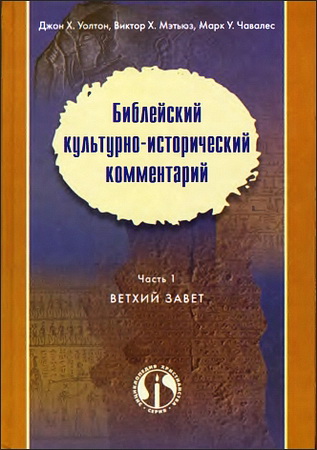
Metzger - Coogan - The Oxford Companion to the Bible - модуль BibleQuote
Bruce M. Metzger and Michael D. Coogan - The Oxford Companion to the Bible
3rd edition. - Oxford: Oxford University Press, 1993. – 932 p.
ISBN: 9780195046458
e-ISBN: 9780199891023
The Oxford Companion to the Bible provides an authoritative one-volume reference to the people, places, events, books, institutions, religious belief, and secular influence of the Bible. Written by more than 250 scholars from some 20 nations and embracing a wide variety of perspectives, the Companion offers over seven hundred entries, ranging from brief identifications--who is Dives? where is Pisgah?--to extensive interpretive essays on topics such as the influence of the Bible on music or law.
Ranging far beyond the scope of a traditional Bible dictionary, the Companion features, in addition to its many informative, factual entries, an abundance of interpretive essays. Here are extended entries on religious concepts from immortality, sin, and grace, to baptism, ethics, and the Holy Spirit. The contributors also explore biblical views of modern issues such as homosexuality, marriage, and anti-Semitism, and the impact of the Bible on the secular world (including a four-part article on the Bible's influence on literature).
Bruce M. Metzger is George L. Collord Professor Emeritus of New Testament Language and Literature, Princeton Theological Seminary. A recognised authority on the text of the New Testament, he was chairperson of the NRSV Bible Committee, which produced the New Revised Standard Version, and he was co-editor (with Roland E. Murphy) of The New Oxford Annotated Bible.
* * *
For nearly two millennia, the Bible has been the cardinal text for Judaism and Christianity. Its stories and characters are part of both the repertoire of Western literature and the vocabulary of educated women and men. It is, however, more than a collection of ancient tales. Even before a canonical list of books considered sacred scripture or holy writ was established, the writings we now call the Bible were considered normative: they laid down the essential princples of how human beings should deal with God and with each other. The practice of quoting from, and alluding to, earlier texts as authoritative is found within the Bible itself and has continued unabated in subsequent Jewish and Christian writings. At the same time, the Bible has also been formative; subsequent generations of believers have seen themselves as descended from, and in continuity with, those to whom God had spoken and for whom he had acted definitively in the past, and the recital of those words and events has been instrumental in shaping the religious communities of succeeding generations. The Bible has thus had an immeasurable influence on Judaism and Christianity, on the cultures of which they have formed a part, and on all those traditions in some ways derived from them, such as Islam.
Although the Word “Bible” means “book,” and the Bible has been treated as a single book for much of its history, it is in fact many books, an anthology of the literatures of ancient Israel, and, for Christians, also of earliest Christianity. The Bible thus speaks with many voices, and, from the time of its emergence as an authoritative sacred text, readers and interpreters have noted its many repetitions, inconsistencies, and contradictions. Since the Enlightenment especially, critical consideration of the Bible—that is, study of it insofar as possible without presuppositions—has irreversibly affected what may be called the “precritical” understanding of the Bible as simply a unified text, God's eternal, infallible, and complete word. Discoveries of ancient manuscripts (such as the Dead Sea Scrolls) and of literatures contemporaneous with, or earlier than, those preserved in the Bible (such as stories of creation and the Flood from ancient Babylonia and the gospels of Thomas and Philip from Nag Hammadi in Egypt), as well as innumerable archaeological finds, have deepened our understanding of the Bible and the historical and cultural contexts in which its constituent parts were written. This new understanding of the Bible has resulted in continuous scholarly attention and popular interest.
The Oxford Companion to the Bible is an authoritative reference for key persons, places, events, concepts, institutions, and realities of biblical times. In addition, the Companion provides up‐ to‐date discussions of the interpretation of these topics by modern scholars, bringing to bear the most recent findings of archaeologists and current research methods from such disciplines as anthropology, sociology, and literary criticism. Interpretation of the Bible has of course not been consistent, and throughout history the Bible has been used to support contradictory positions on such issues as slavery, the role of women, war and peace, forms of government, and finance. The Companion reflects this diversity: it is consciously pluralistic, and its more than 250 contributors, as well as its editors and editorial advisory board, encompass a wide spectrum of intellectual and confessional perspectives. They represent the international community of scholars, coming from some twenty countries, on five continents. No attempt has been made by the editors to produce any dogmatic unanimity; readers should not be surprised to find differing interpretations in different entries. Contributors have been urged to present their own scholarly views while noting diverse perspectives. In general, the articles aim to present the consensus of interpretation, or its lack, attained by the most recent scholarship, and to avoid partisanship and polemic.
* * *
Abraham
Abraham is the earliest biblical character who is delineated clearly enough to be correlated, to a limited extent, within world history. His homeland on the Fertile Crescent (possibly at Haran, at least in Gen. 12.1–5) and movements southeast toward Chaldean Ur (Gen. 11.31), then west to Canaan and Egypt, correspond to known Amorite migratory and commercial routes. He may have been a caravan merchant, though the Bible presents him only as a pastoralist. This vague relation of Abraham to history does not exclude debate as to how much of his biography might have been worked up for vividness or as retrojection of a later tribal unity. More insistent claims of historicity presume contemporaneity with Hammurapi (despite the discredited equation of the latter with Amraphel [Gen 14.1]). An even earlier date was put forward on the basis of some premature interpretations of Sodom at Ebla. The name Abram (= Abiram, as Abner = Abiner), used in Genesis from 11.27 to 17.5, is there ritually changed to Abraham, a normal dialectal variant, though explained in relation to ʾab-hāmôn, “father of many.”
A certain unity in the whole Abraham saga (Gen. 11.27–25.11) involves a rich variety of peoples and individuals conditioning his activity; twenty-two separate episodes are discernible (see L. Hicks, Interpreter's Dictionary of the Bible 1.16). Eleven are attributed to the Yahwist (J): base around Haran, Genesis 11.28–30; call westward, 12.1–3; Canaan pause, 12.4–9; separation from Lot, 13.1–13; promise involving Mamre, 13.14–18; progeny like stars, covenant-incubation, 15.1–6, 7–24; Hagar, 16; the three at Mamre, 18.1–15; vain plea for Sodom, 18.16–33; birth of Isaac, 21.1–7; and old age, 24.1–25.11. Five other episodes suggest the Elohist (E): parts of the narrative of the covenant in chapter 15, especially verses 13–16; Gerar, 20; Ishmael expelled, 21.6–21; Abimelech 21.22–34; and the call to sacrifice Isaac, 22 (See Aqedah). The Priestly (P) additions include: journey to Canaan, parts of Genesis 11–12; birth of Ishmael, 16.1–16; covenant of El-Shaddai and circumcision, 17; birth of Isaac, 21.1–3; Machpelah, 23; death, 25.7–11; and, less clearly, the unique episode concerning Melchizedek (chap. 14).
The three strands respectively see Abraham as “father of all nations” (J); “model of faith” (E; see Rom. 4.9; Heb. 11.8); and “guarantor of Israel's survival” (P, in the context of exile). The covenant with Abraham is also a blessing for all the peoples of the earth (Gen. 12.3; 18.18) and especially a bond of religious unity with his other descendants, the Ishmaelites (Arabs: Gen. 21.21; 25.12). Abraham's progress from (Ur or) Haran through Canaan into Egypt involves numerous theophanies (Gen. 12.6, Shechem; 12.8, Bethel; 13.18, Hebron; 21.33, Beer-sheba; 22.14, Moriah), justifying his eventual takeover of the whole area (Gen. 13.14–17) or, more sweepingly, the takeover by “his god” (El) of the cult of the local El, not clearly seen as either identical or different.
In Deuteronomy, Abraham is associated with Isaac and Jacob (Deut. 1.8; 6.10); the three are often generalized as “your fathers” (9.18; 11.9; NRSV: “your ancestors”), especially as those with whom God made a covenant (7.12; 8.18), a covenant still in force (5.3). The Deuteronomic history recalls Abraham in Joshua 24.2–3; 1 Kings 18.36; 2 Kings 13.23; but it is surprising how seldom he is mentioned there, as well as in the Psalms (only 47.9; 105.6, 9, 42) and the preexilic prophets (only Mic. 7.20, probably a late addition). The poorer classes of Judah who never were sent into exile justified their inheritance as the promise to Abraham (Ezek. 33.24), but the stronger group of returnees attributed their own liberation to God's faithfulness to Abraham “my friend” (Isa. 41.8, prominent in James 2.23 and in Muslim tradition, notably as the name of Hebron, al-Halil). Abraham is often mentioned in the book of Jubilees and sometimes in other pseudepigrapha.
Abraham is second only to Moses among New Testament mentions of biblical heroes. Sometimes this is in a slightly belittling sense, when he is claimed as father of the impious (Matt. 3.9; John 8.39). More often the truly Abrahamic descent of the Jews is acknowledged as a stimulus for them to live up to their heritage (Luke 19.9; 16.24; Heb. 6.13). This true but qualified descent from Abraham forms a key factor in Paul's anguished efforts to determine how and in what sense Christianity can claim the promises made to Israel (Rom. 4.1, 13; Gal. 3.7; 4.22). Ultimately, as father of all believers (Gal. 3.7), Abraham is to be looked to as a source of unity and harmony rather than dissent among Jews, Christians, and Muslims.
See also Abraham's Bosom; Ancestors, The; Genesis, The Book of; Pentateuch.
Robert North
Money Changers
Mentioned only in the account of Jesus' attack on merchants in the Temple, which according to the synoptic Gospels took place shortly before his arrest (Matt. 21.12–13 par.) but is set by John at the beginning of Jesus' ministry (John 2.14–22). According to Exodus 30.11–16, every adult male Israelite was to pay half a shekel annually to the sanctuary (see also Neh. 10.32; Matt. 17.24–27). In the period of the Second Temple this tax was paid at Passover; to assist pilgrims to Jerusalem, money changers apparently functioned within the large open area known as the “Court of Gentiles” (see Map 9) or in the porticoes that framed the Temple enclosure, converting to the proper payment different currencies or those that were religiously offensive because of portraits on coins (see Money). Although rabbinic sources provide some evidence for complaints about profiteering by the money changers, who charged as much as eight percent for their service, the reaction of Jesus seems exaggerated, especially in its fullest form in Mark 11.15–19. It is furthermore unlikely that one person could control all activity within the vast Temple courtyard; the Gospel narratives, written after the destruction of the Temple in 70 CE, are making a theological point about Jesus, depicting him as a prophet in the tradition of Jeremiah and Isaiah, both of whom are quoted directly (see also Zech 14.21).
Michael D. Coogan
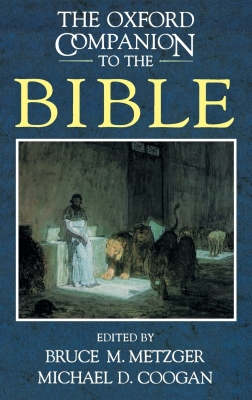
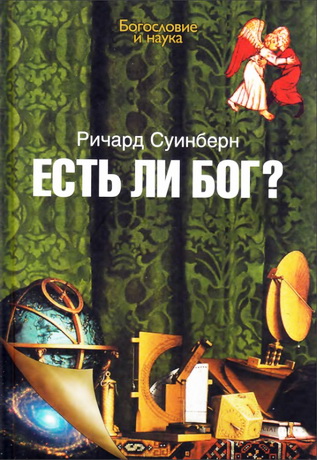
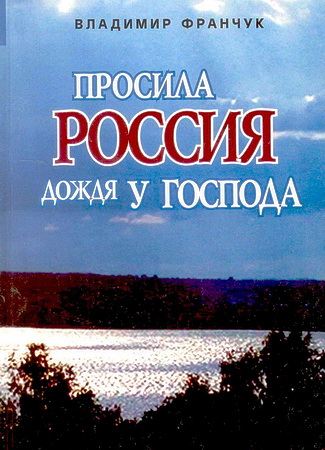
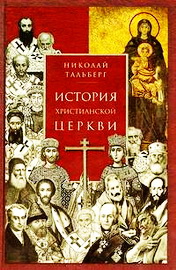

Комментарии
Пока нет комментариев. Будьте первым!